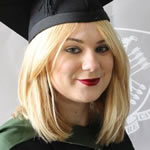 Max Gallien, a student at the London School of Economics and Political Science, was joint runner-up in Making Sense of Society, the ESRC’s writing competition 2017 in partnership with SAGE Publishing. This is his essay.
Max Gallien, a student at the London School of Economics and Political Science, was joint runner-up in Making Sense of Society, the ESRC’s writing competition 2017 in partnership with SAGE Publishing. This is his essay.
As I talk to him, Ahmed pulls his chair into his store to escape the hot Tunisian sun. He is a retired teacher – the years of screaming children can be counted in the rings framing his eyes. Behind him is his merchandise. To make up for a small pension, Ahmed is selling kitchenware in a market near the Libyan border. Over 400 tiny concrete garages surround him, goods piled high – clothes, bags, microwaves. It looks like any other market, but note an invisible detail: everything sold here is illegal. Every good in this market has been smuggled into Tunisia. Ahmed, though he may not look the part, is a smuggler. Continue reading
 Lauren White, a student at the ESRC-funded
Lauren White, a student at the ESRC-funded  Wilhelmiina Toivo, an ESRC-funded PhD student from the University of Glasgow, was joint winner of
Wilhelmiina Toivo, an ESRC-funded PhD student from the University of Glasgow, was joint winner of  Mila Steele is Publisher at
Mila Steele is Publisher at 